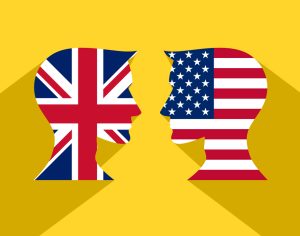What can we look forward to during 2024, regarding customs, international trade, free trade agreements, export controls and even sanctions? It promises to be a very eventful year. And while this month’s article is by no means a definitive list, hopefully it covers most of the industry’s current major talking points.
After the European Union (EU), work will start on the UK’s CBAM
The flagship law passed by the EU was the Carbon Border Adjustment Mechanism (CBAM). This involves the collection and reporting of emissions data embedded in certain products. Late in 2023, the UK Government announced that they too would implement CBAM, this ‘green’ EU initiative. Therefore, this topic will be a crucial one for years to come.
UK sanctions against Russia set to continue
In 2023, the UK – in line with their partners from the EU and USA – expanded economic sanctions against Russia. This included additional laws banning the import of steel and iron products made from materials sourced in Russia. Since the start of 2024, the UK prohibited the trading of Russian diamonds.
Businesses will need to remain up to date regarding these new sanctions and export control measures. Therefore, to avoid falling foul of the new rules, businesses are advised to join webinars or undertake training. They could also subscribe to organisations which keep businesses up to date about changes in the law.
UK’s first non-EU trade agreement: CPTPP (Comprehensive and Progressive Agreement for Trans-Pacific Partnership)
In 2023, the UK acceded to the CPTPP trade bloc, kick-starting the UK’s membership of an ambitious trade deal. This agreement provides access to 12 economies across Asia, the Pacific, and the Americas.
So, in 2024, we can expect this trade agreement to really take shape and benefit UK businesses. These businesses may wish to explore the membership perks of CPTPP for British exporters. This will be different from sector to sector. And it’s always important to understand the CPTPP Rules of Origin. We, at Customs Manager, can help you understand these complex laws.
The Border Target Operating Model (BTOM)
BTOM represents the UK’s final plans for a new approach to importing goods into Great Britain. This will take shape incrementally, beginning at the end of January 2024.
The first stage is the introduction of the new veterinary border and SPS controls from January 31st. This is based on risk categories and the submission of Export Health Certificates (EHCs). Live border checks start in April of this year.
EU’s Windsor Framework for Northern Ireland
The Windsor Framework for Northern Ireland is seen as a breakthrough for EU-UK relations – after a turbulent few years following the Brexit vote. Last year witnessed the rollout of new, beneficial schemes, such as the UK Internal Market Scheme (UKIMS). There were also the Duty Reimbursement Scheme, Customs Duty Exemption Programme and the Northern Ireland Retail Movement Scheme.
The so-called ‘Green Lane‘ is expected to be simplified during 2024. Anyone who wants to understand how it all works, or apply for any of the schemes, or to file a customs declaration form for goods entering or leaving Northern Ireland, please get in touch with Customs Manager.
Customs Declaration Service (CDS) for Export in March 2024
In the first half of 2024, UK exporters will switch from CHIEF (Customs Handling of Import and Export Freight) to CDS (Customs Declaration Service) for exporting goods. We have been supporting businesses in their declarations for years, offering weekly CDS updates. The information provided is explained at granular level. CDS training is available, so click here to view our schedules and options for 2024.
Some other developments that may affect the UK
EU Deforestation Law: In 2025, a new EU deforestation law will come into force requiring importers to meet stringent new rules. This will have an impact on UK businesses.
US and EU ‘Forced Labour Law’: Following the example of the US, the EU is likely to approve a law, requiring supply chains to be free of forced labour. We will keep a close eye on this and report back. UK businesses may need to follow due diligence obligations as stipulated by the US and EU.
World Customs Organisation (WCO) leadership change and International Customs Day: Long-standing Secretary General (2009-23), Dr Kunio Mikuriya, concluded his term with the WCO on December 31st, 2023. He has been replaced by Ian Saunders. International Customs Day was celebrated worldwide on January 26th.
World Trade Organisation (WTO): In February 2024, the WTO will make changes to world trade rules at its bi-annual ministerial conference. Look out, in particular, for the extension of a delay on the imposition of customs duties on electronic transmissions. If this suspension does not get renewed, we may face duties on e-commerce transactions very soon.
Potential change with 2024 elections: There is a wide range of elections on the horizon this year. These include the European Parliament elections in June; the US Presidential election in November; and most likely another General Election in the UK – on a date yet to be announced. This can change customs and global trade policies significantly. Russia also faces presidential elections but there appears to be no likelihood of a change in the pipeline here.
Conclusion and final thoughts: Last year was significant in that it marked the end of the ‘traditional customs manager’ who cared mainly about tariff classification, valuation and origin.
The new modern customs manager needs to consider newer complications, such as CBAM, deforestation and forced labour. The implementation of new policies will require customs’ professionals to grow extensively beyond their present remit.
Share via:








































